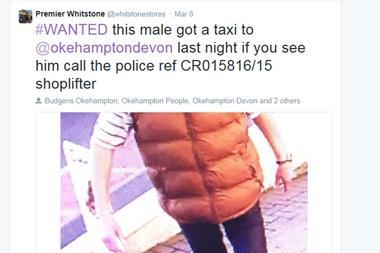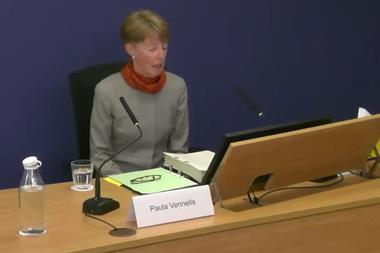Facebook is becoming the marketing tool of choice for many retailers, but exploiting it to its full potential takes some careful organisation.
When Mark Zuckerberg created Facebook more than a decade ago, even he couldn’t have imagined how much of an impact the social media site would have on modern life. The online tool has evolved from being simply a way to keep up with friends to being a seriously useful business tool, adopted by businesses big and small.
It’s not hard to see why firms like Facebook. It’s easy to use, can connect you to a far-reaching community and, best of all, it’s free. C-store retailers can use it to connect not only with customers (old and new), but with brands and suppliers.
Yet media-savvy c-store retailers point out that Facebook takes some careful handling to ensure it provides commercial value.
Chaz Chahal of Costcutter Bromsgrove in Worcestershire is an avid fan of social media and now has different Facebook sites for each of his three stores. He says it helps him to “invade shoppers in their homes and when they are out and about”.
However, Chaz is quick to point out that this coverage doesn’t come without effort. “For it to work properly social media needs to be fairly structured and consistent; it’s not great to have loads of posts one day and then nothing for a week,” he says. “You also have to be quite careful about what and how you post, and make sure that you really are targeting it to the right people,” he warns.
The Bromsgrove store’s Facebook page tends to be updated every other day, which Chaz believes is the perfect balance to keep shoppers interested without bombarding their news feeds. He has appointed a dedicated member of staff to oversee each one according to a set timetable of promotions, community news, in-store events and National Lottery draw results.
The downsides of Facebook
Using Facebook isn’t always a postive experience as Alan Asa Edwards, manager at MSR News in Nottingham, points out. “Facebook has its pros and cons. It can be used to broadcast to a wider audience but then you also get the ‘trolls’, people who write offensive and aggressive comments on your posts.”
Chris Ward of Eurospar, Milford Haven in Pembrokeshire, has a similar view to Alan. “If someone decides to write an argumentative comment it can snowball out of control very quickly. I find it very difficult not to get involved as I certainly take it personally.”
But no matter how infuriating the response, Chris and Alan believe it’s important to deal with any negative remarks professionally. “If the offending user is posting bad language or threatening behaviour we’ll delete and ban them. However, if it seems to be a genuine customer complaint we will reply by email or phone and sort it out,” says Alan.
Because of this, Chris has started using Twitter over Facebook, but building a following is taking time. “Facebook does keep your name out there, but it’s overstated. Twitter is better tailored to trade and other retailers.”
Chaz has learned the hard way how best to handle the site. “We bought a Lotto ticket and told people via Facebook that if they ‘Liked’ our page and we won the draw, then they could share our winnings. It went crazy and we got 300 Likes in just two hours. It turned out, however, that many of the people ‘Liking’ us were people who enter competitions professionally, sitting in their living rooms hundreds of miles away and who had no links to Bromsgrove or our store. I think some were even from the US! It was quite funny, but we’ve since learned to be much more targeted when promoting events or competitions.”
He’s constantly looking to the future, and to make interacting with his customers even easier Chaz is planning on buying three iPads for staff to use while on the shop floor, rather than having to log on to the back office computer to update Facebook.
Jamie Keshwara, who owns three Nisa Stores in and around Whittlesey, Peterborough, has also learnt the dos and don’ts of Facebook. After a recent survey showed him that only 11% of people who receive the Whittlesey stores’ promotional leaflets through their doors actually read them, Jamie - along with the help of his brother Anish - decided to focus on using Facebook as a marketing tool.
Jamie uses Facebook to engage with his customers and advertise the stores’ latest promotions. However, Jamie also goes one step further to ensure his posts are seen by as wide an audience as possible. “I pay a small amount of money to boost particular posts on Facebook,” he explains. “I choose the area, gender and age I want Facebook to focus on - primarily Whittlesey and the surrounding towns - and then it will appear on those people’s pages.” Facebook statistics say that if Jamie was to put just £3 behind one of his posts it could reach between 500 and 1,400 people.
“One of our posts from 26 January 2015 about our fresh meat offers in store reached 240 people organically. When we boosted this post it reached 5,800 people and 10% of those people clicked on the post, which took them to our page,” Jamie adds.
With such great results Jamie is tempted to discontinue the leaflet distribution, which costs a lot more than boosting posts on Facebook. However, he is worried that Facebook won’t reach all of his target customers. “Although we are targeting a lot of people online, it is likely that those who don’t use social media are the people who are reading our leaflets.”
Jamie says that he wants to ensure his posts are not just reaching people, but being read by people, too. And to do this, he needs to build up a following. “We currently have just under 500 likes on Facebook. As more people start to like our page it will show us that people are actually interested as our posts will automatically start appearing on their newsfeeds.
Like Chaz, he is conscious of putting people off by overloading them with posts. “Retailers need to be mindful of what they are posting and how often they are posting it. They need to make sure it’s relevant and that they aren’t bombarding people’s newsfeeds with continuous promotions, otherwise the Likes may start falling rather than rising,” Jamie warns.
Facebook has many uses, as Jamie and Chaz have found out, but one retailer has been using it for a lot more than marketing his store. When three men conned the staff at Whitstone Stores in Holsworthy, Devon, out of £30 and stole items from the store in a well-orchestrated operation, owner Dan Cock turned to Facebook to ask the community for help in tracking down the culprits.
The response was incredible. “I was amazed at how well Facebook worked; our post reached thousands of people. We were able to track the three culprits down to a local park and the police managed to arrest two, but unfortunately one man got away.
“After posting his image on our Facebook page, other retailers hit by the same group - as well as hotel managers and taxi drivers - all came forward and we were able to follow his route to Exeter train station, where it is believed he got a train to London.”
Since the incident Dan has set up a new Facebook page, a closed group for retailers only, called The Retailers Security Exchange. It is dedicated to helping retailers combat crime in their stores. Says Dan: “The group has been running since 23 March and after two weeks we had already gained 29 members. Sharing information on Facebook means it is done in real time and stores close by can act immediately. Retailers can warn staff and spread the word in seconds,” he adds.
A growing force
The original Facebook site may also be just the start, as Dan has more ideas. “As the group expands will I need to split it into regions? Is crime too large an area to cover on one group? I’ve got the ball rolling; now I just need other retailers to let me know their thoughts.”
Having run Whitstone Store’s Facebook page for more than five years, Dan has gained 1,700 likes and has a four-and-a-half star rating from 83 reviews. He says: “It’s all about staying in touch with our customers. Not only do we post about our own products and promotions, we also repost community information.
“Facebook has two sides, really: on one side it’s a very useful tool to keep in touch with brand owners, manufacturers and suppliers; and on the other side, from a business perspective, it’s great for trade but predominantly for engagement and marketing with our customers.”
All of a flutter over Twitter
Social media rival Twitter is another digital avenue for retailers to explore. Adam Hogwood of Budgens Broadstairs in Kent has used Twitter regularly for the past two years to engage and promote his store in messages no longer than 140 characters.
He says: “It took a while to learn the mechanics, but we slowly grew our followers by targeting local issues and joining in with the conversations rather than bombarding people with images of displays and PMPs.”
Adam believes Twitter is a “superb” tool. “A lesson Londis retailer Binny Amin taught me is that people buy on emotion, so engaging with them and showing them that your business is more than just a shop is the perfect way to gain their trust and confidence. The beauty of Twitter is that users are stripped bare and put on a pedestal for everyone to read their opinions.”
He acknowledges that this also has its disadvantages, as he needs to be especially careful of what he Tweets “as everyone seems to be a critic these days”.
Adam has also created a Facebook page connected to Twitter. However, as he posts directly from Twitter, the hashtags or people he tags do not correlate well onto Facebook. He adds: “It is hard to try to run two social media sites.Facebook is just there as a backup.”
The limit on characters hasn’t held him back and Adam puts Twitter to all sorts of uses, from posting about special offers, current topics in the news, local products, points of difference and even using it to run competitions. “It is important to be more than a shop, to show people that we are down to earth and emphasise that we are just regular people and not a soulless supermarket,” he stresses.
























No comments yet